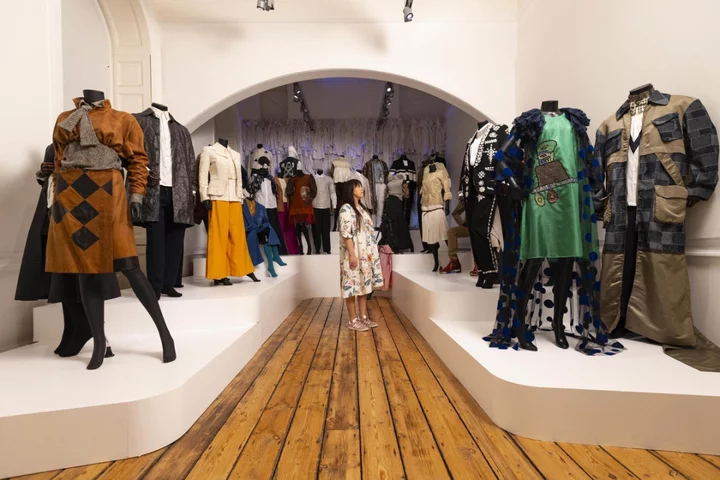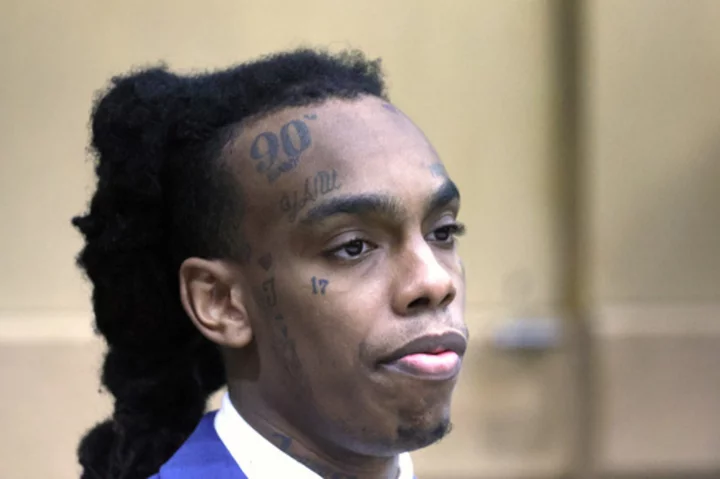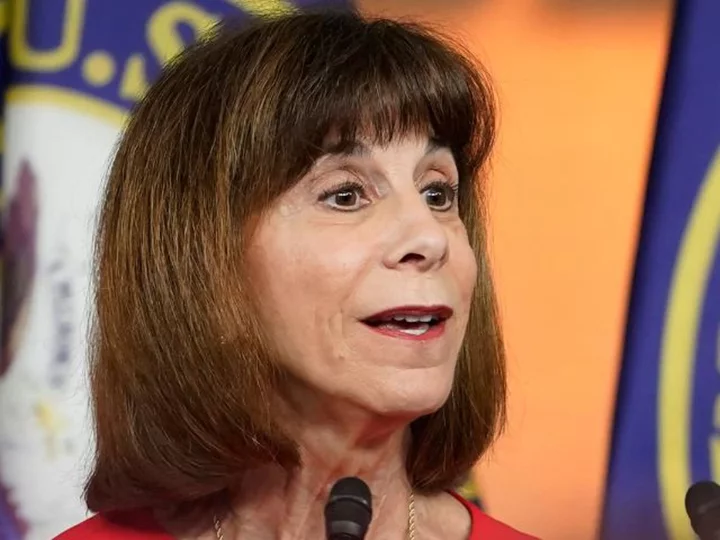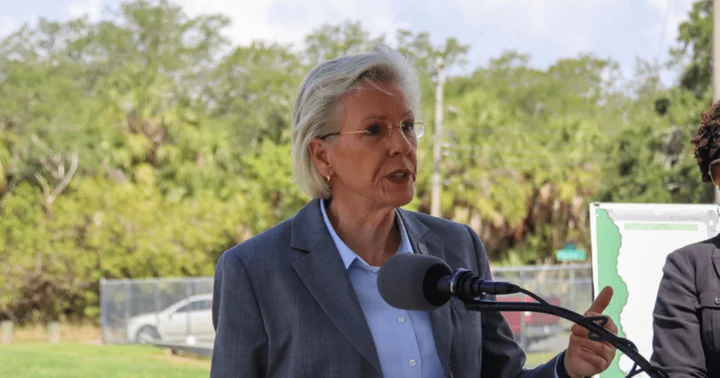The Missing Thread exhibition celebrates the unique contribution of black British fashion
A new exhibition puts the spotlight on the contribution of black designers in British fashion. “A lot of what black creatives do is informed by some of those darker and negative experiences. It’s our secret weapon,” said Jason Jules, who curated The Missing Thread: Untold Stories of Black British Fashion, alongside Harris Elliott and Andrew Ibi. The exhibition at Somerset House looks at fashion, music, photography and art from the 1970s to present day, using four distinct themes: home, tailoring, performance and nightlife. It doesn’t shy away from the vivid experiences of racism and discrimination, and highlights how political yet liberating clothes can be for black communities. The exhibition features commissions from a new generation of black designers, including Bianca Saunders, Saul Nash and Nicholas Daley, as well as up-and-coming artists such as London-based couturier Ninivah Khomo and patternmaker Monisola Omotoso. There’s also the presence of design legends – such as Ozwald Boateng, Bruce Oldfield – who designed a red silk crepe dress worn by Diana, Princess of Wales – and Joe Casely-Hayford, a designer and tailor who started showing collections in the 1980s and died in 2019. “Joe was the starting point for this entire exhibition,” Jules said. “He is the most missing part of the narrative [of mainstream fashion]. Individually we’ve all worked with Joe. On one level he seemed like he was just constantly in fashion, very aspirational, elegant, a sophisticated and distant person. But beyond the surface, he was actually very social, non-judgemental, playful, fun – the whole lot. “And in a sense, we wanted to communicate the dichotomy between how we see people and ourselves. “For me, he was the best designer this country ever had, because when you put him back in his rightful place, he transforms the entire British and global landscape of how we understand fashion.” Ibi agreed: “To be able to sustain that level of tenacity for such a long period of time, when you are consistently overlooked, is just amazing. And not enough people know who he is, especially young black people. “This is why it’s never been just about fashion, because in the background, whether you were studying or trying to get to the club, taxis wouldn’t even stop for you. It didn’t matter if you were creative or not.” The curators hope that the immersive exhibition, which “references our lives, time, progress, and development”, Ibi said, will highlight that black people have always been in fashion. Elliott – who set up The Black Orientated Legacy Development Agency (BOLD) with Ibi and Jules – said: “Style was always inherently in our genes. We couldn’t leave our homes dressed in a certain way. You had to always look impeccable to get anywhere in life, when melanin is your best friend.” The Morgan Stanley Exhibition – The Missing Thread: Untold Stories of Black British Fashion exhibition opens on September 21, 2023 and will run until January 7, 2024 at Somerset House.

A new exhibition puts the spotlight on the contribution of black designers in British fashion.
“A lot of what black creatives do is informed by some of those darker and negative experiences. It’s our secret weapon,” said Jason Jules, who curated The Missing Thread: Untold Stories of Black British Fashion, alongside Harris Elliott and Andrew Ibi.
The exhibition at Somerset House looks at fashion, music, photography and art from the 1970s to present day, using four distinct themes: home, tailoring, performance and nightlife.
It doesn’t shy away from the vivid experiences of racism and discrimination, and highlights how political yet liberating clothes can be for black communities.
The exhibition features commissions from a new generation of black designers, including Bianca Saunders, Saul Nash and Nicholas Daley, as well as up-and-coming artists such as London-based couturier Ninivah Khomo and patternmaker Monisola Omotoso.
There’s also the presence of design legends – such as Ozwald Boateng, Bruce Oldfield – who designed a red silk crepe dress worn by Diana, Princess of Wales – and Joe Casely-Hayford, a designer and tailor who started showing collections in the 1980s and died in 2019.
“Joe was the starting point for this entire exhibition,” Jules said. “He is the most missing part of the narrative [of mainstream fashion]. Individually we’ve all worked with Joe. On one level he seemed like he was just constantly in fashion, very aspirational, elegant, a sophisticated and distant person. But beyond the surface, he was actually very social, non-judgemental, playful, fun – the whole lot.
“And in a sense, we wanted to communicate the dichotomy between how we see people and ourselves.
“For me, he was the best designer this country ever had, because when you put him back in his rightful place, he transforms the entire British and global landscape of how we understand fashion.”
Ibi agreed: “To be able to sustain that level of tenacity for such a long period of time, when you are consistently overlooked, is just amazing. And not enough people know who he is, especially young black people.
“This is why it’s never been just about fashion, because in the background, whether you were studying or trying to get to the club, taxis wouldn’t even stop for you. It didn’t matter if you were creative or not.”
The curators hope that the immersive exhibition, which “references our lives, time, progress, and development”, Ibi said, will highlight that black people have always been in fashion.
Elliott – who set up The Black Orientated Legacy Development Agency (BOLD) with Ibi and Jules – said: “Style was always inherently in our genes. We couldn’t leave our homes dressed in a certain way. You had to always look impeccable to get anywhere in life, when melanin is your best friend.”
The Morgan Stanley Exhibition – The Missing Thread: Untold Stories of Black British Fashion exhibition opens on September 21, 2023 and will run until January 7, 2024 at Somerset House.









